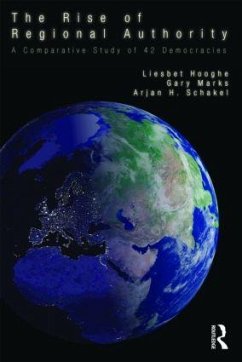
Authority and Control in International Communism
1917-1967
Versandkostenfrei!
Versandfertig in 1-2 Wochen
58,99 €
inkl. MwSt.
Weitere Ausgaben:

PAYBACK Punkte
29 °P sammeln!
Contrary to the American public image of international communism as monolithic, the history of communism has been one of increasingly frequent deviation and dissension - punctuated by a process of defection and expulsion of individuals and entire national parties. In examining the fragmentation of communism as a movement, Bernard S. Morris focuses on the breakdown of its structure of authority as exercised through the organs of control. He analyzes factors contributing to the initial cohesion and later disintegration of the communist movement.The author demonstrates how the artificial attempt ...
Contrary to the American public image of international communism as monolithic, the history of communism has been one of increasingly frequent deviation and dissension - punctuated by a process of defection and expulsion of individuals and entire national parties. In examining the fragmentation of communism as a movement, Bernard S. Morris focuses on the breakdown of its structure of authority as exercised through the organs of control. He analyzes factors contributing to the initial cohesion and later disintegration of the communist movement.The author demonstrates how the artificial attempt to maintain the Marxian vision of world revolution through the agency of the Soviet system faltered and ultimately failed. He shows how tensions between communist doctrine and foreign policy, coupled with the unexpected viability of the capitalist system in the West, accelerated pluralism within the communist movement. This led to Yugoslavia's assertion of independence, the rise of polycentrism in the post-Stalinist era, and the Russo-Chinese split. As we have seen, it ultimately led to the demise of the Soviet Union itself.Morris contends that the collapse of international communist unity underscores the inexorable hold of nationalism on human loyalties. He points out that American policy's obsession with international communism frustrated the development of a realistic policy toward radical nationalist movements which, because they were identified with communism, became equally suspect. Written by an experienced scholar and political analyst, this highly informative work skillfully balances a chronological account with a searching examination of the evolution and gradual disintegration of the dream of world revolution.














